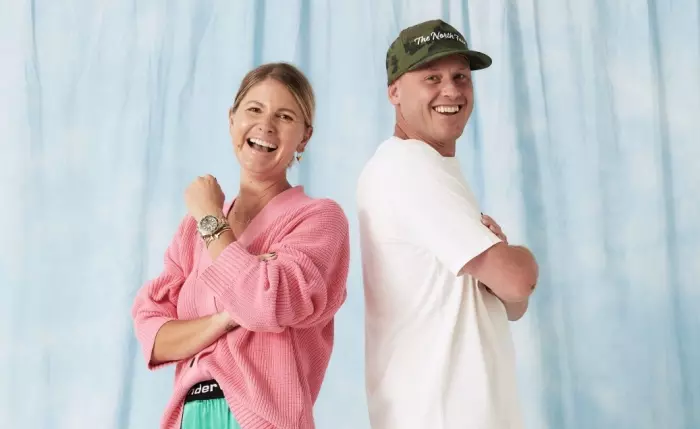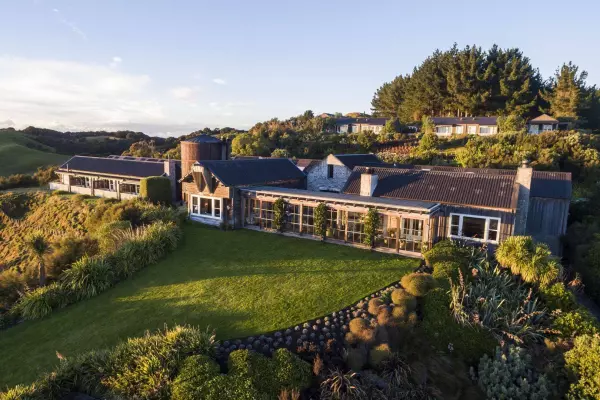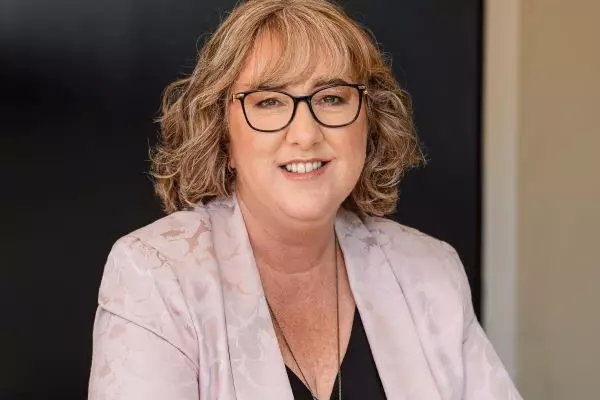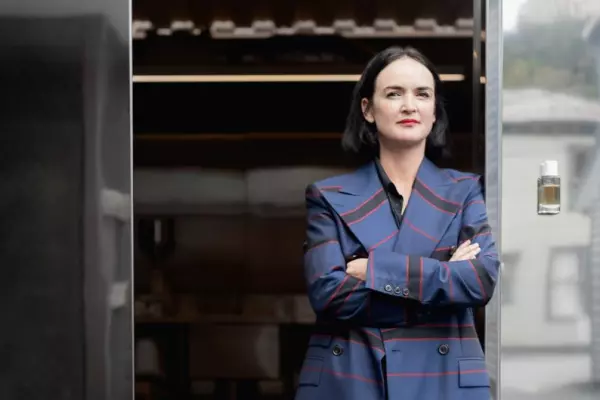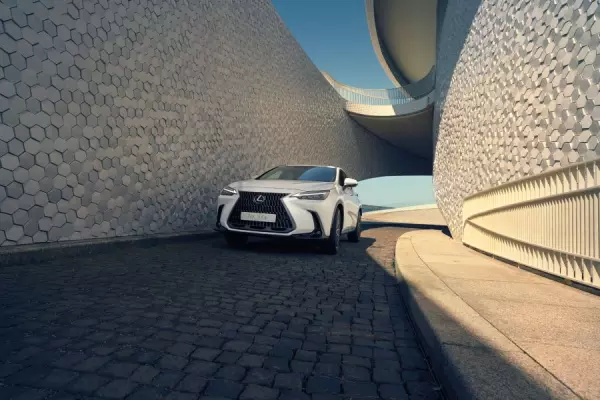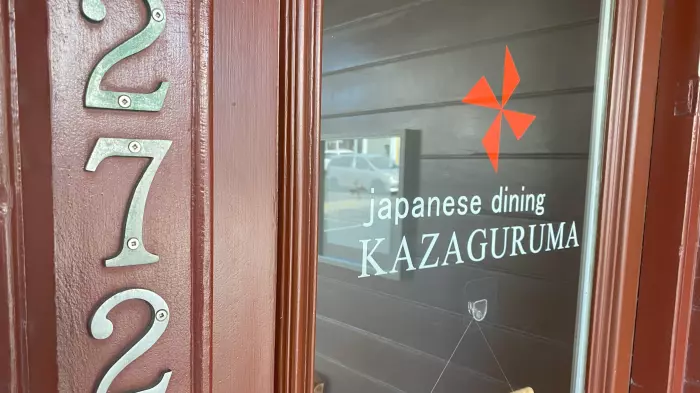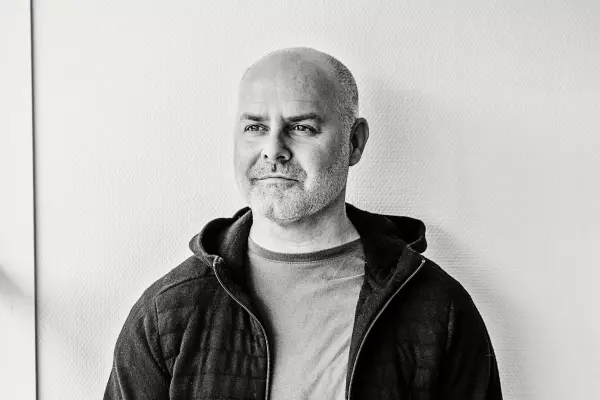Rickie Dee and James Rigden were barely out of their teens when they decided to leave behind 9-to-5 jobs and launch a company focused on redefining the concept of luxury living, both in fashion and lifestyle. Intending to take a boutique approach to retailing, they opened their first outlet in an industrial space in Drake St, central Auckland, selling a mix of established and emerging brands from around the world that today number more than 150. Now, two decades later, Superette’s six brick-and-mortar outlets, its growing online operation and its Superette International concept store — showcasing top-tier designers alongside new brands — have become premier go-to destinations for customers seeking to embrace what’s trending internationally.
The fashion industry is notoriously fickle. What does it take to survive for 20 years and thrive?
Rickie: We're still very true to what we were when we started but we’ve adapted to the changing retail environment. Online has been a big focus and you need to have an understanding of who your customers are and what they're after.
James: You need to be flexible, nimble, and welcome change. It’s an industry that is easy to remain inspired by because fashion is ever-changing.
What is the most valuable business lesson you've learned in the 20 years?
Rickie: We were 21 years old when we started. That in itself was quite a big learning. In those initial days, we had no idea who was going to come to our shop. Now, we have the business to a size where we can't do it alone. And we've recognised that we need to employ the people who are experts in each team and division. There are quite a few brands that we started with that we still have today, but there were a lot that we were, like, what were we thinking?
James: Communication. Across the board. Whether it’s with the team, customers, suppliers. If you can get that right it’s the key to everything.
What were the benefits of being 21 when you started the business?
Rickie: That age is on your side in terms of drive, when nothing’s going to stop you. We never for a moment thought, what if this doesn’t happen? It just wasn’t on our radar. We’d go about things not thinking and not evaluating. Looking back, there was a lot that could have gone wrong. But you don’t think that at the time.
What’s been the biggest triumph for the business?
Rickie: Expanding the business into Superette International (the concept store) in 2018. That was a really exciting and proud move, having a new arm to the business.
What’s been the biggest disaster, and what did you learn from it?
Rickie: I think it would probably be, in the early days, learning about cash flow and things like that. There were points where we didn't really know what we were doing and the business could have folded, but it's about picking yourself up.
Fashion is a highly competitive industry. How have you developed resilience?
James: Expect to get things wrong. It’s OK to get things wrong. The trick is identifying that it is wrong quickly, owning up to it, and rectifying it even faster without dwelling on it.
Rickie: I think you do have to be thick-skinned. The retail environment in New Zealand, and further afield, is constantly changing, so it's important that you change and adapt, rather than doing what your competitors are doing.
With places like Faradays in Parnell and luxury brands opening stores at Westfield Newmarket, what's your plan to maintain cut-through?
James: It’s great for our little country. We’ve never seen it before. We’re making headway in that area and showcasing what’s out there in terms of a luxury offering. On the flipside, for us it’s really important we keep our focus on what we’re doing and not what others are doing, ensuring that we’re consistently evolving and growing and always putting our customer experience first.
Rickie: We have the mindset that we don't really look at what other stores are doing. I think that can distract you from driving your ship. Regardless of who's coming into the market, they're all doing something that's unique to their store and to the customer. As long as you do well what you're doing and are constantly adapting, there's no problem. That offering in Newmarket has been great for the area after a two-year closure of part of the mall, which was tough.
Did your store in Newmarket suffer from the reduced shopper traffic?
Rickie: Newmarket as a whole fell out of favour a little bit as a destination. You definitely noticed it wasn't humming like it usually did, and is now doing again. We did notice a downturn in that area, but it wasn't huge.
Did the covid lockdowns mean that you’ve had to adjust your business proposition?
Rickie: We used to travel a lot, for buying trips, but we haven’t been able to do that for the last two years. So we’ve been doing it online, with models demonstrating the range, which has been working fine. It’s made us think: do we need to be travelling so often and as regularly? Because that's a huge cost to the business. That has been quite eye-opening.
Have you had to accelerate any aspects of the business that were longer-term planning projects?
Rickie: Yeah, there are a few things, such as upscaling the online service to meet demand with retail being closed. That's been quite a big challenge. We’re also fitting out a new warehouse, which is much bigger than the one we've got at the moment. We've had to fast-track that so we can upscale dispatch and house all the inventory that we've got coming in. We're lucky that we don't have a shortage of stock from shipping delays because we're pulling on so many different brands.
What are your ambitions for the business for 2022?
James: To grow and be better than yesterday. We’re looking forward to moving into our new warehouse in early 2022. We have some exciting new additions there, such as a purpose-built photo studio, and the new space gives us the ability to triple our stock holding. We’re also looking to invest heavily in online and to expand and refit our retail stores for both Superette and Superette International. We’re going into 2022 with such a strong team and it will be great to see how we can innovate and make next year even better.
This interview has been edited for clarity.


